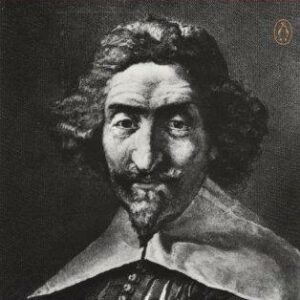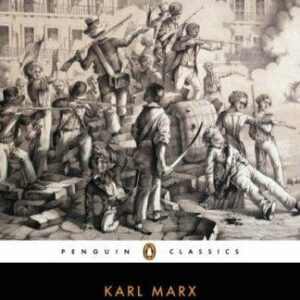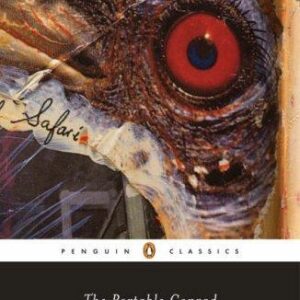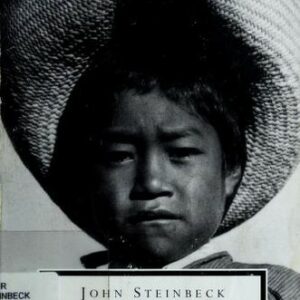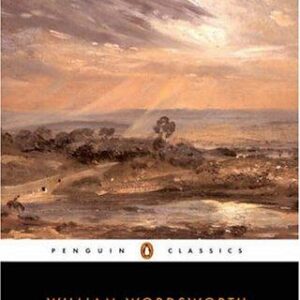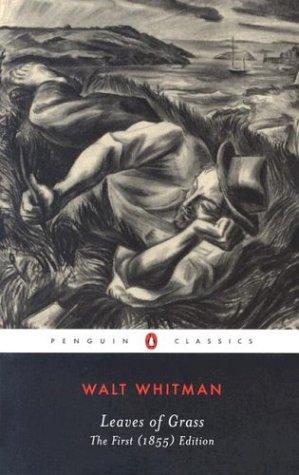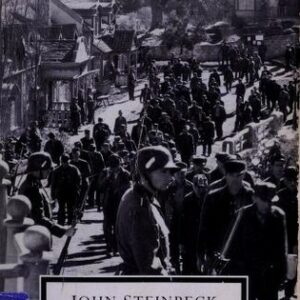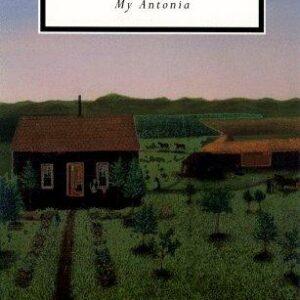The Iron Heel
$16.00
| Title | Range | Discount |
|---|---|---|
| Trade Discount | 5 + | 25% |
- Description
- Additional information
Description
Part science fiction, part dystopian fantasy, part radical socialist tract, Jack London’s The Iron Heel offers a grim depiction of warfare between the classes in America and around the globe. Originally published nearly a hundred years ago, it anticipated many features of the past century, including the rise of fascism, the emergence of domestic terrorism, and the growth of centralized government surveillance and authority. What begins as a war of words ends in scenes of harrowing violence as the state oligarchy, known as “the Iron Heel,” moves to crush all opposition to its power.
For more than seventy years, Penguin has been the leading publisher of classic literature in the English-speaking world. With more than 1,700 titles, Penguin Classics represents a global bookshelf of the best works throughout history and across genres and disciplines. Readers trust the series to provide authoritative texts enhanced by introductions and notes by distinguished scholars and contemporary authors, as well as up-to-date translations by award-winning translators.Jack London (1876–1916) was born John Chaney in Pennsylvania, USA. In 1896 he was caught up in the gold rush to the Klondike river in north-west Canada, which became the inspiration for The Call of the Wild (1903) and White Fang (1906). Jack London became one of the most widely read writers in the world.
Table of Contents
Title Page
Copyright Page
Introduction
Foreword
CHAPTER I – MY EAGLE
CHAPTER II – CHALLENGES
CHAPTER III – JACKSON’S ARM
CHAPTER IV – SLAVES OF THE MACHINE
CHAPTER V – THE PHILOMATHS
CHAPTER VI – ADUMBRATIONS
CHAPTER VII – THE BISHOP’S VISION
CHAPTER VIII – THE MACHINE BREAKERS
CHAPTER IX – THE MATHEMATICS OF A DREAM
CHAPTER X – THE VORTEX
CHAPTER XI – THE GREAT ADVENTURE
CHAPTER XII – THE BISHOP
CHAPTER XIII – THE GENERAL STRIKE
CHAPTER XIV – THE BEGINNING OF THE END
CHAPTER XV – LAST DAYS
CHAPTER XVI – THE END
CHAPTER XVII – THE SCARLET LIVERY
CHAPTER XVIII – IN THE SHADOW OF SONOMA
CHAPTER XIX – TRANSFORMATION
CHAPTER XX – A LOST OLIGARCH
CHAPTER XXI – THE ROARING ABYSMAL BEAST
CHAPTER XXII – THE CHICAGO COMMUNE
CHAPTER XXIII – THE PEOPLE OF THE ABYSS
CHAPTER XXIV – NIGHTMARE
CHAPTER XXV – THE TERRORISTS
Notes
FOR THE BEST IN PAPERBACKS, LOOK FOR THE
THE IRON HEEL
JACK LONDON (1876-1916) led a wild and colorful life. As a youth he left school at fourteen and worked in a cannery, as an oyster pirate, and as a member of the Fish Patrol in San Francisco Bay. He traveled throughout the country, joined the Gold Rush to the Klondike in 1897, sailed to the Caribbean, studied London’s East End slums, and reported on the Russo-Japanese War for the Hearst papers. He read voraciously and always dreamt of being a writer. His short stories of the Yukon were published in magazines and in a collection, The Son of the Wolf, in 1900, bringing him fame. Thereafter he published an enormous number of stories and many novels, including The Call of the Wild, White Fang, and Martin Eden.
JONATHAN AUERBACH is a professor of English at the University of Maryland, College Park, with degrees from the University of California, Santa Cruz and Johns Hopkins University. In addition to publishing articles and books on such American authors as Poe and London, he has also written extensively on film, particularly early cinema. He has been awarded Fulbright Fellowships to Portugal, Cyprus, and Tunisia, and has lectured on American studies in Vietnam, Hong Kong, Egypt, and Japan.
FOR THE BEST IN PAPERBACKS, LOOK FOR THE
In every corner of the world, on every subject under the sun, Penguin represents quality and variety—the very best in publishing today.
For complete information about books available from Penguin—including Penguin Classics, Penguin Compass, and Puffins—and how to order them, write to us at the appropriate address below. Please note that for copyright reasons the selection of books varies from country to country.
In the United States: Please write to Penguin Group (USA), P.O. Box 12289 Dept. B, Newark, New Jersey 07101-5289 or call 1-800-788-6262.
In the United Kingdom: Please write to Dept. EP, Penguin Books Ltd, Bath Road, Harmondsworth, West Drayton, Middlesex UB7 0DA.
In Canada: Please write to Penguin Books Canada Ltd, 90 Eglinton Avenue East, Suite 700, Toronto, Ontario M4P 2Y3.
In Australia: Please write to Penguin Books Australia Ltd, P.O. Box 257, Ringwood, Victoria 3134.
In New Zealand: Please write to Penguin Books (NZ) Ltd, Private Bag 102902, North Shore Mail Centre, Auckland 10.
In India: Please write to Penguin Books India Pvt Ltd, 11 Panchsheel Shopping Centre, Panchsheel Park, New Delhi 110 017.
In the Netherlands: Please write to Penguin Books Netherlands bv, Postbus 3507, NL-1001 AH Amsterdam.
In Germany: Please write to Penguin Books Deutschland GmbH, Metzlerstrasse 26, 60594 Frankfurt am Main.
In Spain: Please write to Penguin Books S. A., Bravo Murillo 19, 1º B, 28015 Madrid.
In Italy: Please write to Penguin Italia s.r.l., Via Benedetto Croce 2, 20094 Corsico, Milano.
In France: Please write to Penguin France, Le Carré Wilson, 62 rue Benjamin Baillaud, 31500 Toulouse.
In Japan: Please write to Penguin Books Japan Ltd, Kaneko Building, 2-3-25 Koraku, Bunkyo-Ku, Tokyo 112.
In South Africa: Please write to Penguin Books South Africa (Pty) Ltd, Private Bag X14, Parkview, 2122 Johannesburg.
PENGUIN BOOKS
Published by the Penguin Group
Penguin Group (USA) Inc., 375 Hudson Street, New York, New York 10014, U.S.A
Penguin Group (Canada), 90 Eglinton Avenue East, Suite 700, Toronto,
Ontario, Canada M4P 2Y3 (a division of Pearson Penguin Canada Inc.)
Penguin Books Ltd., 80 Strand, London WC2R 0RL, England
Penguin Ireland, 25 St Stephen’s Green, Dublin 2, Ireland (a division of Penguin Books Ltd)
Penguin Group (Australia), 250 Camberwell Road, Camberwell,
Victoria 3124, Australia (a division of Pearson Australia Group Pty Ltd)
Penguin Books India Pvt Ltd, 11 Community Centre, Panchsheel Park, New Delhi – 110 017, India
Penguin Group (NZ), cnr Airborne and Rosedale Roads, Albany,
Auckland 1310, New Zealand (a division of Pearson New Zealand Ltd)
Penguin Books (South Africa) (Pty) Ltd, 24 Sturdee Avenue,
Rosebank, Johannesburg 2196, South Africa
Penguin Books Ltd., Registered Offices:
80 Strand, London WC2R 0RL, England
First published in the United States of America by The Macmillan company 1907
This edition with an introduction by Jonathan Auerbach published in Penguin Books 2006
Introduction copyright © Jonathan Auerbach, 2006
All rights reserved
LIBRARY OF CONGRESS CATALOGING IN PUBLICATION DATA
London, Jack, 1876-1916.
The iron heel / Jack London ; edited with an introduction by Jonathan Auerbach ;
notes by Jordan Schugar.
p. cm.—(Penguin classics)
Includes bibliographical references.
eISBN : 978-0-143-03971-6
I. Auerbach, Jonathan, 1954- II. Title. III. Series.
PS3523.O46I7 2006
813’.52—dc22 2005058624
The scanning, uploading and distribution of this book via the Internet or via any other means
without the permission of the publisher is illegal and punishable by law. Please purchase only
authorized electronic editions, and do not participate in or encourage electronic piracy
of copyrighted materials. Your support of the author’s rights is appreciated.
Introduction
Googling the phrase “the iron heel” produces some surprising results. Although Jack London, in his novel, dramatizes the moment his hero Ernest Everhard coins the term to refer to the despised Oligarchy (see chapter 9), we discover it circulating in a number of prior late-nineteenth-century literary and political texts to signify various kinds of oppression. The Duke in Twain’s Huckleberry Finn (1884) histrionically bemoans his fate “to be always ground into the mire under the iron heel,” while a Henry James character in The Bostonians (1885) invokes it more specifically to mean patriarchy: “They [women] had been trampled under the iron heel of man.” In an 1888 speech, President Grover Cleveland gives it a still sharper thrust, contrasting “trusts, combinations, and monopolies” with “the citizen [who] is struggling far in the rear or is trampled to death beneath an iron heel.”
If we think London, James, and Cleveland make for strange bedfellows, the case grows even more curious when we search the Internet for more recent references. The phrase keeps popping up most remarkably in discussions linked to William Pierce, the author of the race war fantasy The Turner Diaries (1978). Beyond the penchant for bigots and anti-Semites like Pierce to label any big centralized government an “iron heel,” London’s own novel actually turns up as recommended reading on some of these white supremacist Web sites, including one entitled “Get Ready for the Rebirth of Western Culture!” that endorses this “classic story of revolutionary struggle” despite “the commies [who] tried to paint London as one of their own since he was opposed to Capitalism.”
One of those “commies” was Leon Trotsky, who, in a letter to London’s daughter penned some thirty years after the novel’s 1908 publication, praised the narrative’s remarkable “historical foresight” in predicting the rise of fascism, “its economy, . . . its governmental technique, its political psychology.” Trotsky’s comments were not simply referring to Germany in the 1930s but potentially to America as well, especially its dark “alliance between finance capital and labour aristocracy.” That Aryan nationalists and communists alike have championed this novel must give us pause; while it’s fair to say that the white supremacists might be guilty of some serious misreading, The Iron Heel’s depictions of state tyranny, as well as the underground armed resistance against that state, possess a strong appeal open to an unsettling range of interpretations. What follows is one such interpretation that may be more productively pondered after reading the novel than before.
Any attempt to understand the politics of The Iron Heel must start with its formal framework. Clearly a larger-than-life idealization of himself, Jack London’s romantic autobiographical hero Ernest Everhard remains at the heart of the novel, stoutly embodying the noble spirit and principles of the revolution. As early as 1896 London was known as “the Boy Socialist of Oakland,” and following his rapid rise to literary fame nearly a decade later (1905-06), he actively promoted the proletariat cause by delivering a series of talks across the country intended to educate Americans about the coming ascendancy of socialism. Many of the arguments and positions adopted by Ernest in the course of the novel closely resemble London’s own lectures and essays.
Yet the fictional figure of Everhard is bent or mediated in two important ways: by historical retrospect and by gender. Rather than offering a transparent account of his life, London relies on the literary convention of a found manuscript, beginning with a “Foreword” presumed to be written some seven centuries in the future by a historian named Anthony Meredith, who throughout the manuscript offers annotations, explanations, statistics, and excerpts from contemporaneous speeches and pamphlets intended to shed light on the narrative’s centuries-old events. Most noticeably, Meredith right off the bat seeks to undermine some of the flattering claims testifying to Everhard’s greatness, before we even have a chance to process these claims. As in the case of Edward Bellamy’s utopian novel Looking Backward: 2000-1887 (1888), an important influence on London, the rhetorical effect here is to diminish and render unfamiliar the story’s own time frame (1912-32) from the vantage point of a future society already assumed to have attained a perfect socialist Brotherhood of Man (BOM). To this end, Meredith inserts all kinds of scholarly footnotes intended to explain to his BOM readers strange and ostensibly obsolete capitalist terms and practices such as “Wall Street,” “strike-breakers,” and “bankruptcy.” While at times this literary technique may strike us as tedious or crude, it does signal London’s effort to give the immediacy of revolutionary struggle a longer historical view.
Historian Meredith insists that the narrator lacks perspective, being “merged” with the narrated events. But he does value the “Everhard Manuscript” for being such a “personal document,” for so vividly conveying what he calls “the feel of those terrible times” (italics in original). Here is where gender carries great significance, for structures of feeling and intimate emotion entail for London the feminine. Hence his decision to cast the novel’s first-person narrator as Avis Everhard-Ernest’s adoring lover, wife, and corevolutionist. Out of Jack London’s enormous literary corpus, including dozens of novels and hundreds of stories, Avis Everhard represents his most sustained and complete effort to impersonate a female narrator, at once a fully imagined character as well as the tale’s recorder and commentator. Projecting a passionate woman’s voice to recount the very public history of class warfare in America, London seeks to blur any clear separation between the personal and the political.
Like any number of London’s heroines, Avis is a prototypical daddy’s girl, closely attached to her father, who is a University of California-Berkeley physics professor (her mother is conveniently dead). When Ernest suddenly enters her world in the first chapter (entitled “My Eagle”), he disrupts her bourgeois complacency but leaves the family’s patriarchal dynamics intact, functioning less as a rival to the father than a younger, more physically attractive extension of him. The first third of the novel thus works simultaneously as a love story and a conversion narrative, as Ernest, with his rough, bold mannerisms, talks and charms his way into her life at the same time he convinces her, her father, and family friend Bishop Morehouse to join the socialist movement. These early chapters are organized by a series of dialogues whereby Ernest debates and masters his capitalist interlocutors apparently by virtue of his rapier logic and command of fact. But his ability to sway others depends more directly on his magnificent sheer presence and his charisma, which in turn depend on his sexualized body that continually captures and compels the attention of Avis. He is, after all, Ernest Everhard—no Viagra needed.
If the fascist state in Germany and Italy in the 1930s relied on a cult of personality, London seemingly in anticipation shifts personality away from the Iron Heel—a remarkably shadowy entity, as we shall see—to give such appeal to the revolutionary side. The idea of a hero would seem to demand for London an equivalent degree of hero worship, with his female lead Avis serving as its primary source. In this regard the Ernest-Avis fictional relationship closely parallels the actual marriage between Jack and his wife, Charmian, who by 1905 had become the writer’s muse, amanuensis, and publicity agent all rolled into one. Early on, Avis’s gushing adoration sometimes threatens to engulf the novel’s politics, such as her over-the-top equation of Ernest’s manly vigor as “the apostle of truth” with the sufferings of Christ. On occasion London does attempt some damage control here, undercutting or at least tempering the woman’s adulation by way of Anthony Meredith’s “Foreword,” or by brief moments of irony in the narrative itself. Puzzled that others do not notice the same “radiance that seemed to envelop him as a mantle” that she sees, for example, Avis goes on to blame “the tears of joy and love that dimmed my vision.” But for the most part, London seems constitutionally unable or unwilling to ironize his first-person narrator in any systematic way, and as a result her maudlin account of idolization and conversion, mixing together the spiritual and the sexual, teeters on the brink of wretched excess.
Before we too quickly dismiss her syrupy glorification of Ernest in these early pages, however, we need to put Avis’s discourse in a broader context that is indicated by her repeated bouts of weeping. The narrative’s persistent references to tears, alongside equally pervasive invocations of blood as well as representations of the weak, abject male body, all suggest how London is shrewdly drawing on the language of sentimentality and the sentimental novel to make his case. As many scholars have recently argued, dramatic displays of domestic feeling in the works of nineteenth-century women writers like Harriet Beecher Stowe are not signs of vapid, unearned emotion, as formerly supposed, but rather the powerful grounds for political action. London summons this sort of sentimental pathos by making the episode of the mill-worker Jackson’s missing arm the centerpiece of Avis’s conversion.
A victim of a factory accident who is tossed aside by bosses and mill owners and ignored by juries and journalists, Jackson has been left with a dismembered, emasculated body in stark contrast to Everhard’s own bulging virility. Investigating the mutilation (a symbolic castration), Avis learns that those who should bear responsibility cannot act as “free agents,” as Ernest remarks, linked as they are to “the merciless industrial machine.” Declaiming that “our boasted civilization is based upon blood, soaked in blood,” Everhard in the role of Avis’s “father confessor” goes on emphasize an important lesson: that these men are “tied by their heartstrings,” refusing to testify against the capitalists for fear of destroying their own families. More to the point, perhaps, is that the Oligarchy itself understands, exploits, and banks on these sentimental heartstrings as a way of keeping institutions such as the law and the newspapers complicit. The problem here, as London would dimly seem to recognize later in the novel, is that Ernest and Avis themselves cannot be entirely free agents to the extent they are mutually bound by their romantic love.
That such a tough, macho author like Jack London would have recourse, via his female narrator, to such sentimental polemics merits closer examination. At a certain stage in the narrative, however, blood, tears, and the male body (both maimed and full) inevitably give way to another kind of politics. The key turning point occurs near the end of a heated dispute between Ernest and the Philomath Club, an elite gathering of members of the ruling class. Having conclusively demonstrated the superiority of his arguments for socialism, Everhard finally provokes the following stark response from a Mr. Wickson:
We are in power. Nobody will deny it. By virtue of that power we will remain in power. . . . We will grind you revolutionists down under our heel, and we shall walk upon your faces. The world is ours, we are its lords, and ours it shall remain. . . . There is the word. It is the king of words—Power.
Personality persuades, and persuades absolutely, as we had previously assumed in the case of Everhard, an inexorable force combining exceptional manly strength, irrefutable logic, and deep feeling (fueled by Avis). But Wickson stops Ernest dead in his tracks by shifting the grounds of the debate. With a ring of authority and authenticity that Jack London appreciated all too well, Wickson invokes the master term of terms: power, for its own sake, self-perpetuating, subject to no higher laws, beyond good and evil. Power can only be met by power, Ernest understands in reply, by which he initially means “the power of our ballots on election day.” Yet when Wickson scoffs in response that such election results would simply be denied (presumably declared invalid), Ernest is compelled to modify power now to mean something more ominous: “In roar of shell and shrapnel and in whine of machine-guns shall our answer be couched.” Here Everhard echoes verbatim the words that Wickson himself had used moments earlier to describe the Oligarchy’s reliance on violence, suggesting how, in the ensuing battle for dominance, oppressor and oppressed will match and mimic one another.
This crucial exchange on the means and ends of power exposes the limits of sentimentality and masculinity as forms of persuasion. Although Ernest at times still continues to try to convince others of the inevitable triumph of socialism, from this point on he functions more and more as a prophet preaching to the already converted about what the future holds. If he cannot change the present, at least he can prognosticate what is to come. The shift in the novel’s rhetoric from persuasion to prophecy is marked by a parallel change in Avis’s narrative voice, now less passionate and less preoccupied with Ernest’s sexual magnetism. Redefining her love as part of a larger “great adventure,” Avis in these transitional middle chapters traces a broader set of historical developments that are global rather than local in scope. In quick succession, Avis details a sweeping series of crises: the threat of a war between America and Germany designed to distract the proletariat by way of patriotic nationalism, a paralyzing international general strike that successfully prevents this war, the defection of the great labor unions and the subsequent rise of a caste system, and a surge in religious revivals—all signs of impending apocalyptic violence. For Everhard, these cataclysms symbolically compel him to trade in his exceptional personal body for the collective body of representative democracy, winning a seat in Congress on the socialist ticket, as he had forecast to Wickson. At this stage, Everhard (and London along with him) still clings to the hope for a peaceful transformation, distinguishing himself and Avis—as “revolutionists”—from the more extreme measures of anarchists and terrorists.
Everhard’s temporary, surprising metamorphosis into an elected congressman representing his socialist constituents corresponds to changes in the Oligarchy itself, now dubbed by Ernest “the Iron Heel”—a phrase which signals the aggressive methods this ruling class has developed to maintain its mastery at any cost. As Avis discovers while investigating Jackson’s amputation, power, although concentrated in a wealthy few, is preserved by a complex network of economic, political, legal, and cultural interests that negate the free agency of virtually all individuals. What Jack London acutely detects here is the emergence of a corporatist state run by a relatively small number of groups served by a wide range of practices and institutions—the law, the press, the university, the church—already in place and taken for granted as somehow impartial or self-evident. When Everhard and his fellow socialists threaten to disclose the bias of these institutions, the Iron Heel reacts by suspending civil law, suppressing free speech (including the book Economics and Education written by Avis’s father), incorporating independent state militias into the national army, and enlisting the aid of reactionary groups organized to infiltrate and police the revolutionists—all as Ernest had predicted.
Perhaps the most striking feature of the Iron Heel is its paradoxical mixture of social prominence and secrecy, a sinister combination that may help explain the attraction of the novel to white supremacists and other contemporary fringe movements. It was easy enough for Jack London to write what he knew, creating in Ernest and Avis and their friends a heroic version of himself and his socialist circle of comrades. But it was more difficult imaginatively to penetrate the inner workings of the state, so that we are left with a more abstract and remote set of effects, sometimes brutal and sometimes spectacular, that show us what the masters do and how they operate but not who they are and what they think. Yet perhaps this is less an imaginative failure on London’s part than a more deliberate decision to keep the Iron Heel as hidden as it seeks to keep itself. In fact, the closest we come to seeing the face of the Oligarchy is Mr. Wickson. While acknowledged as only a minor functionary, Wickson not only articulates the Iron Heel’s gospel of Power, but also possesses the very land or space that Avis and other revolutionists in the end will clandestinely occupy—in essence, share—during their (literally) underground existence.
All too manifest yet simultaneously invisible, at once everywhere and nowhere, the Iron Heel reserves its most spectacular public effect for the floor of Congress. The bomb that Everhard is falsely imprisoned for detonating marks the second key turning point in the narrative, shifting the novel’s focus from persuasion and then prophecy to open warfare. This episode ends any chance for representative democracy to resolve the growing rift between capitalist and proletariat. As the manuscript’s historical annotator, Anthony Meredith, makes explicit in his footnotes (see chapter 17), the bombing echoes both the Haymarket massacre of 1886 and the 1905 assassination of ex-governor of Idaho Frank Steunenberg, the first U.S. citizen to be murdered by dynamite. As early acts of domestic terrorism, these crucial incidents of bloodshed weighed heavily on Americans around the turn of the century. In London’s view, such orchestrated violence pointed to state conspiracy, enabling the government to claim a state of emergency as a way of violating its own governing principles, including illegally rounding up and detaining labor leaders in the case of the 1905 assassination, and summarily executing threatening foreign-born anarchists in the infamous Haymarket instance. So too does the novel’s fictional Iron Heel use such calculated provocation to justify its suspension of law.
From this point on in the narrative, Avis’s account gives way to increasingly harrowing scenes of strife and disorder, culminating in the Chicago Commune slaughter. Jack London is certainly not the first American writer to depict class conflict in such stark, apocalyptic terms. But unlike the gruesome endings of Twain’s A Connecticut Yankee in King Arthur’s Court (1889) and Ignatius Donnelly’s Caesar’s Column (1890), the violence here retains a strange kind of logic whereby revolutionists and state oligarchs effectively mirror one another in their covert operations—no autonomous free agents, but plenty of secret agents. Avis herself notes this strange structural symmetry: “We permeated the entire organization of the Iron Heel with our agents, while our own organization was permeated with the agents of the Iron Heel. It was warfare dark and devious, replete with intrigue and conspiracy, plot and counterplot. . . . There was no trust, no confidence anywhere.”
The puzzle for London—a problem he similarly dramatized in his other political fictions, from “The Minions of Midas” (1901) to The Assassination Bureau (1910)—is how to tell master from rebel given their indistinguishable tactics: the concealment, infiltration, surveillance, and countersurveillance that develops on both sides of the deadly contest. “In that shadow-world of secret service,” Avis remarks, “identity was nebulous.” When the underground captures and converts Wickson’s own son, à la Patty Hearst, for instance, we are meant to appreciate the instability and interchangeability of ideological positions. Avis for her part becomes a double agent, working for the Iron Heel as a provocateur while she spies on them for the revolutionists. In her heart she clearly never abandons her dedication to the socialist cause, but that cause must remain mostly unexpressed, except in the manuscript that records her solitary thoughts and inner feelings. In the company of others she can no longer clearly tell the difference between friend and foe, particularly during the ending scenes of graphic violence that overtake and submerge her.
Jack London’s alter ego Everhard is largely exempt from such confusing paranoia because the author chooses to remove him from most of the novel’s concluding violence. Everhard is absent during the Chicago Commune slaughter, and London finally refuses his readers the satisfaction of seeing his hero’s subsequent death and martyrdom (of which we are informed at the very start of the manuscript). Although Everhard is credited with organizing the “Fighting Groups” of guerrilla warriors who will continue to struggle against the Iron Heel for 300 years, his part is limited in this failed First Revolt. While it might be argued from a feminist slant that the hero’s unexpected disappearance from the narrative’s climax allows the heroine Avis to come into her own and play a primary role for the first time rather than a supporting one, the fact is that during these scenes of violence she is still accompanied by male revolutionist companions, who act to protect and save her from the rampaging mob.
US
Additional information
| Dimensions | 0.5900 × 5.1000 × 7.6800 in |
|---|---|
| Imprint | |
| ISBN-13 | |
| ISBN-10 | |
| Author | |
| Audience | |
| BISAC | |
| Subjects | books fiction, election, essays, dystopian fiction, american literature, FIC037000, political books, classic literature, classic books, fiction books, socialism, classics books, penguin classics paperback, classic books for adults, classic books for teens, classic fiction, dystopian books, penguin modern classics, penguin classic paperback, science fiction, politics, historical, crime, political, classic, fiction, mystery, classics, fantasy, philosophy, dystopia, novels, journalism, economics, classic novels, revolution, FIC055000, dystopian |



